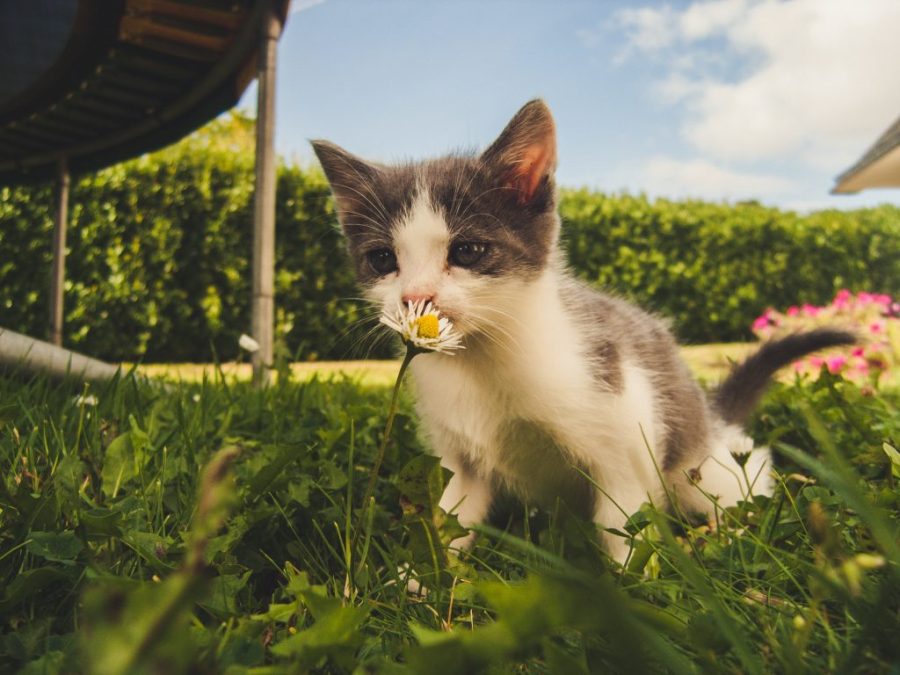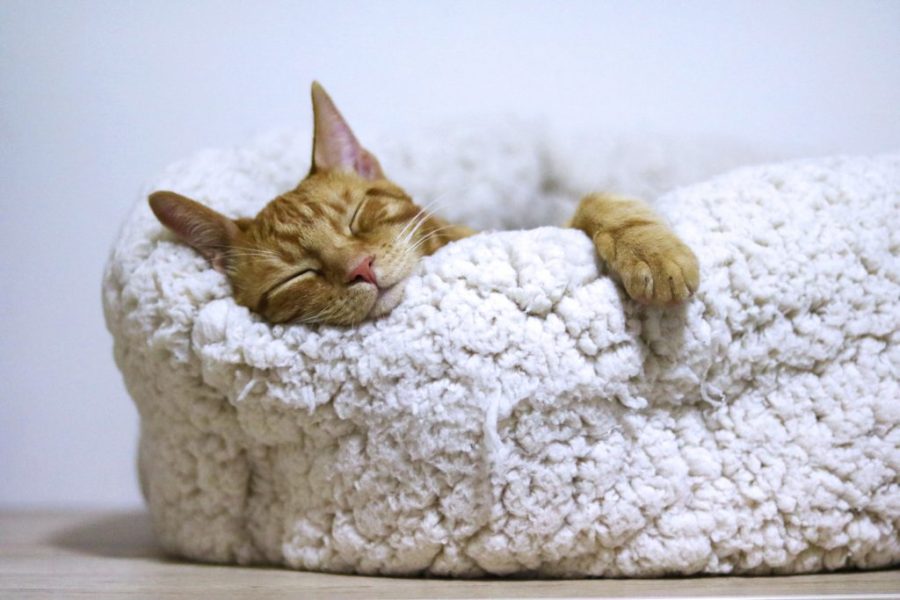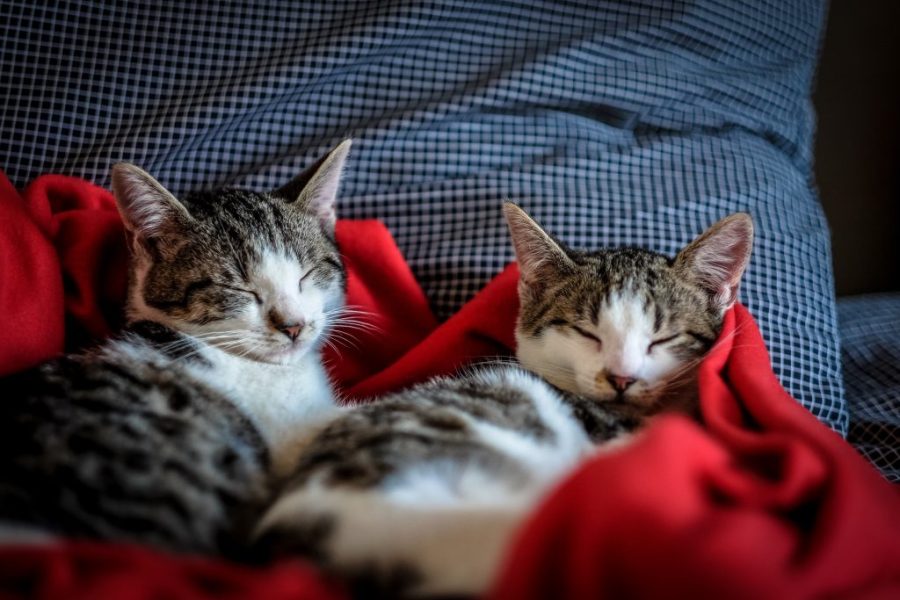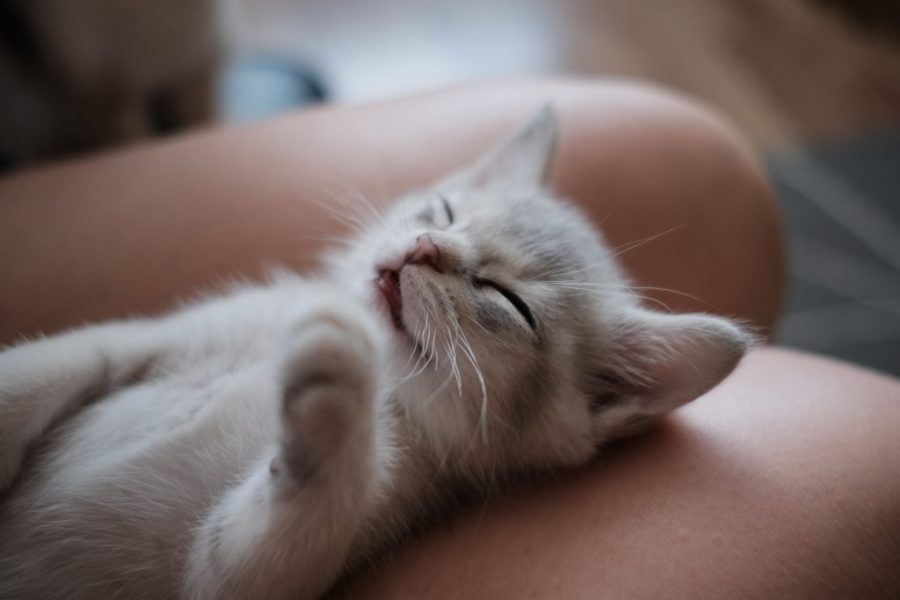How Long After Getting Fixed Will a Cat Continue to Spray
Cats have a reputation of being quiet, mellow creatures. Nevertheless, when your cat begins snoring, you might find that they're exactly the opposite of silent! Snoring is a relatively common occurrence in the human (and canine) world, but it tends to be a less frequent issue with cats.
If your cat has recently started snoring, you might find yourself wondering why this has happened or even if there's something wrong with them. Rest assured that we have the answers for all of your related questions.
If you've noticed your cat is snoring in conjunction with other breathing difficulties, it's definitely time to get your vet's professional opinion. That way, you can rule out any medical issues as the cause for the snoring.
Background on Cats' Sleeping Habits
On average, cats sleep approximately 15 hours in a day. Some tired cats, however, can actually clock as many as 20 hours sleeping. Talk about needing a good snooze! There are several reasons why some cats sleep more frequently than others. Some of these factors include:
- Age
- Indoor vs outdoor cats
- The weather
Age: This is one of the most important factors you should take into consideration when pondering why some cats sleep more than others. Kittens sleep the majority of the day. As soon as they turn into teenagers, however, you'll notice a massive change in their sleeping patterns, and they'll become more active. Finally, senior cats also slow down as they age. This leads them to sleep earlier, take naps more frequently, and sleep for longer periods of time than a younger cat might.
Indoor vs outdoor cats: If your cat spends most of its time inside instead of outside, you might find that your feline friend sleeps more often. This is because they didn't have the opportunity to explore.

The weather: Would you believe that, similar to humans, cats are also impacted by weather? It's true! Whenever it's chilly outside or raining, chances are your cat is going to try to sleep even more than they typically would.
You might be wondering: why exactly do cats sleep so much? That's a perfectly understandable question – after all, they do sleep, on average, over half of the day! Breaking down some of the reasons why cats sleep can help you understand why it's so important that your cat catches some shut-eye.
A main reason that cats prefer to sleep a lot is so that they can conserve their energy. These animals are hard-wired to want to hunt down rodents such as mice, which are more likely to come out during the nighttime. That's why you might see your cat taking naps throughout the day: to save their energy for when they hunt their prey later.
If you observe that your cat is sleeping a significant amount more than they typically do, it might not be a bad idea to check in with your vet and make sure things are going okay. It's better to check in if you have questions than to not!
Main Reasons Why Cats Snore
You might be wondering why exactly your cat is snoring, and it's possible to track down the exact reason! Here are some common reasons why your cat might be doing this.
First, it's important to take into account your cat's breed. Some breeds have flattened facial features – for example, Persian cats – and their facial structure could be responsible for their snores. This is because they have shortened bones in both their face and nose which makes them more prone to experience snoring.
In addition to this, these cats with flattened facial features also may have smaller nostrils which makes breathing restricted. This can also lead to more frequent snoring than their peers that do not have the same facial structure.

Another interesting reason why your cat might snore is because of their sleeping position. When you see your cat shifting around and suddenly there's a large snore, it could be because the way that their head is angled makes airflow restricted. In addition to this, cats that are overweight are more likely to experience snoring than those that are not.
There is also a chance that your cat might be suffering with an upper-respiratory infection, or even chronic nasal inflammation. Finally, blockages in the cat's nasal cavity, such as polyps, tumors, or even a foreign object, can contribute to snoring.
Often, a cat snoring is usually nothing to be concerned about. Nevertheless, if there's even a doubt in your mind that your cat could be experiencing something more difficult, it's essential to take your dog to the vet to rule out any more intense health difficulties.
How to Tell if the Snoring is Abnormal
It's obvious that there are a lot of possible culprits for snoring, but it's important to determine if the snoring is something to be concerned about. There are several ways you can figure out if the snoring is normal, or if there's cause for worry. Here's how to do it.
The first and most obvious way is to take your cat to the veterinarian. This might not be entirely necessary unless you have reason to believe there's a more pressing reason causing the snoring. Still, it could provide valuable peace of mind. In addition, bringing your pet to the vet can help ensure that their overall wellbeing is in check.
Here's a general rule of thumb when it comes to pet snoring: if your cat has been snoring for years, they're probably okay. If your cat recently began snoring, and other behavioral changes are accompanying the snoring? It's time to investigate.

Also, you should pay attention to the way that your cat is breathing while they're awake to rule out any potential issues. If your cat is panting, wheezing, breathing with their mouth open, or working particularly hard to breathe, take your pet to the vet urgently. This could be indicative of a more severe issue.
You can also keep a lookout for nasal discharge or coughing. If these symptoms are present, it's possible that there's a more serious health problem brewing. Finally, if you notice that your cat's face looks swollen, it's time for a visit to the vet. This could potentially tip you off to the presence of a tooth root abscess, which would require professional help.
How to Treat Your Cat Snoring
The way to treat your cat's snoring is largely dependent upon the reason that your cat is snoring. There are several ways to treat your cat's snoring. The first only applies if your feline friend is slightly overweight. If they are, losing a healthy amount of weight can lead to a reduction in snoring.
If a foreign object, polyps, or tumors are to blame for your cat's snoring problem, getting these removed can make your cat stop snoring.
Since cats aren't known for showing symptoms of illnesses until it veers in the direction of something severe, it's essential that you keep an eye out when you notice that your cat is snoring. By doing this, you can ensure that your pet is being properly cared for and you take care of any difficulties as they arise.
Your vet can also advise you on other ways that you can help treat your pet's snoring. They know your pet best, so getting their professional input on what would be the best way to go about treating snoring is the best.
Conclusion
If your cat is a frequent snorer, you're probably looking for some answers as to why this is happening. These questions are only intensified if your cat just began to snore recently. Luckily, there are answers to these questions, and understanding them can help you take control of your cat's health.
Cats generally sleep about 15 hours a day, but certain cats can sleep more. This is largely dependent on their age, but other factors such as weather and activity level can also factor into how much sleep your cat needs.

There are several reasons why your cat might be snoring, and some of them are more serious than others. Some cats are simply predisposed because of their facial shapes, and others might be experiencing polyps, tumors, or even a foreign object stuck in their nose.
While oftentimes a vet visit isn't necessary, if you find that your cat recently began to snore and it is accompanied by other changes in behavior, it's time to check it out. How you should treat your cat's snoring also is highly dependent on why your cat is snoring. There are some treatments that require professional medical help from your vet, and some are as simple as not feeding your feline friend as many cat treats – as tempting as it is.
Every cat has their own unique sleeping patterns and, therefore, snoring patterns. Before you worry that something might be wrong with your feline friend because of their snoring patterns, take time to attempt to figure out what's responsible for your cat's snoring.
SOURCES:
Revealed: How Long Do Cats Slee? (purina.co.uk)
Why Do Cats Sleep So Much? (petmd.com)
Cat Snoring: Is It Normal? (petmd.com)
My Cat Sleeps Constantly — How Much is Too Much and When Should I Worry? (aecmephis.com)
Helping Your Cat to Stop Snoring (argopetinsurance.co.uk)
Source: https://www.reference.com/pets-animals/why-is-my-cat-snoring?utm_content=params%3Ao%3D740005%26ad%3DdirN%26qo%3DserpIndex&ueid=1e880f4c-7235-4e17-8061-089c61f2991f
0 Response to "How Long After Getting Fixed Will a Cat Continue to Spray"
ارسال یک نظر